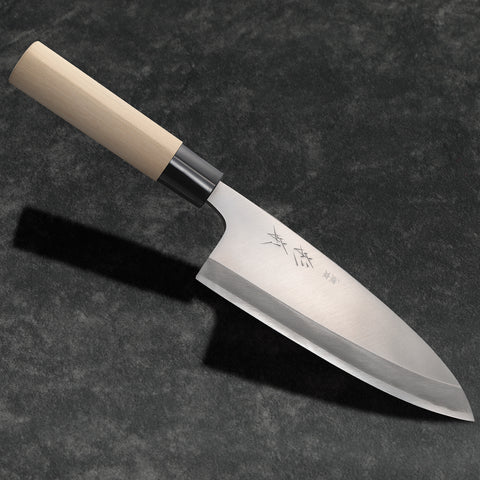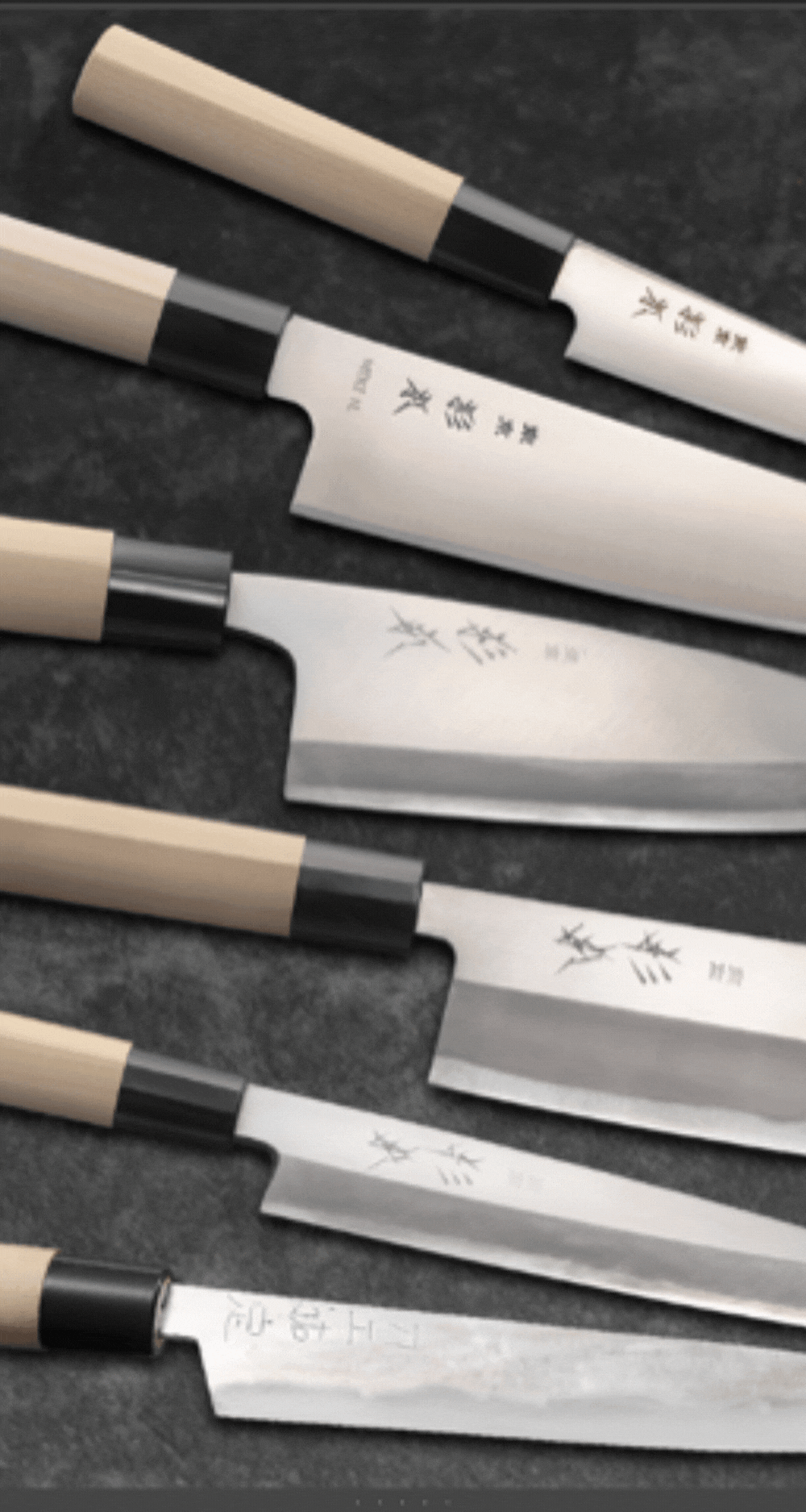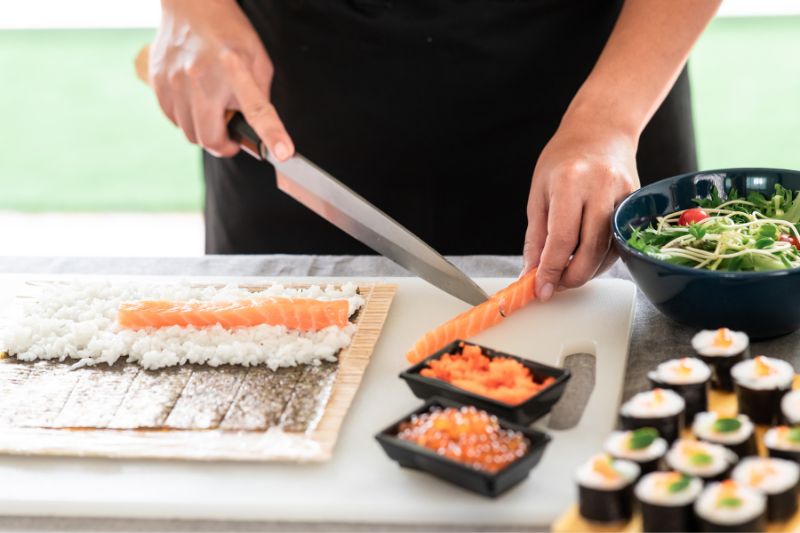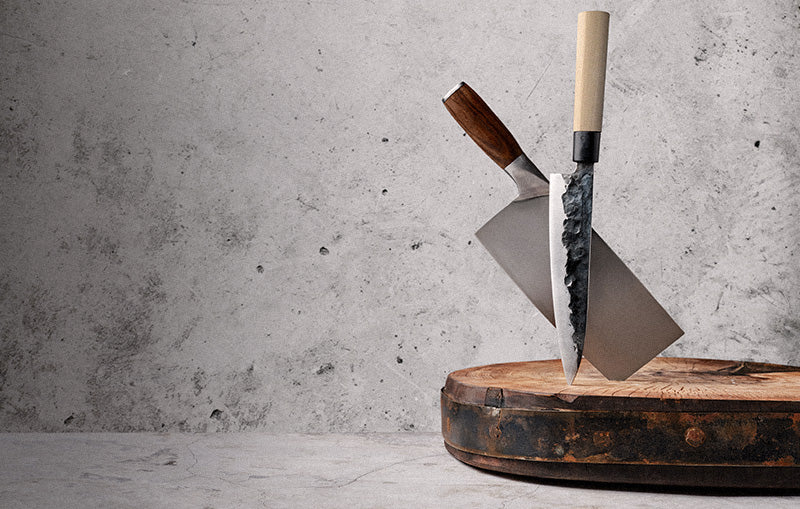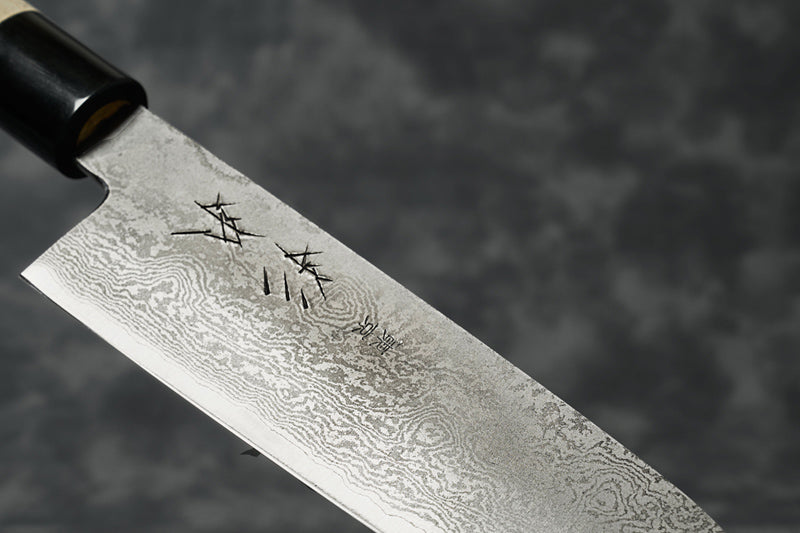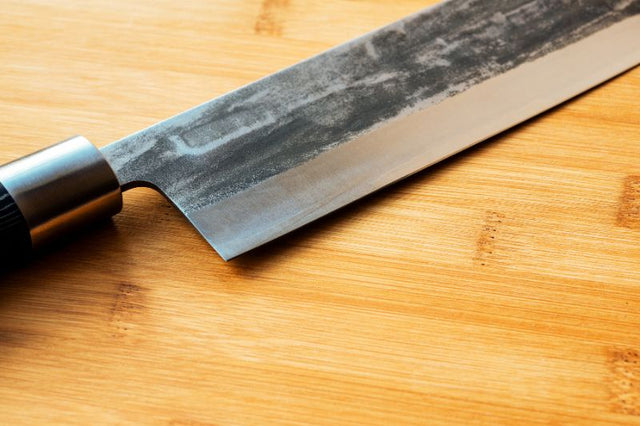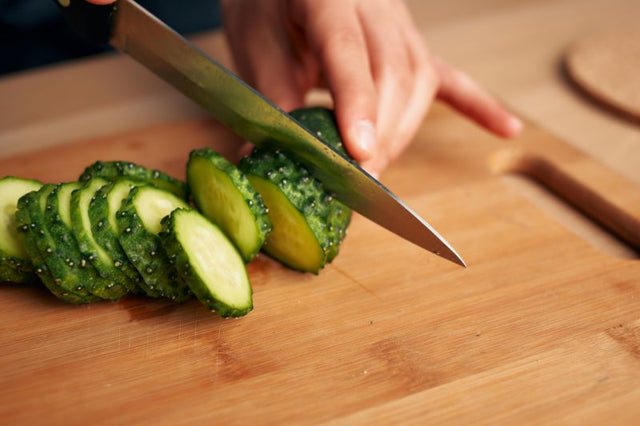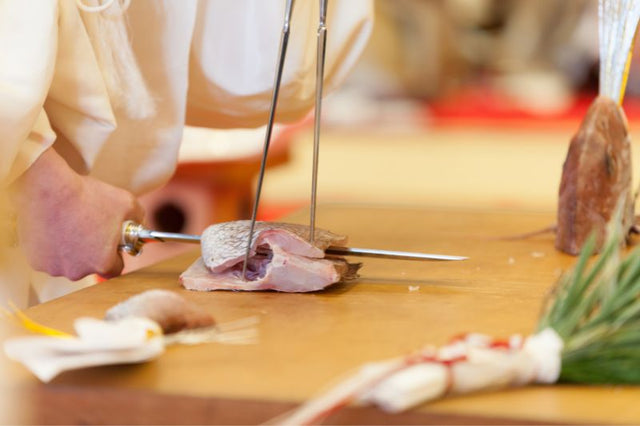Sometimes it can be hard to explain to someone, especially those who aren't crazy about knives like we are here at Dream of Japan, why they should spend their hard-earned money on an expensive Japanese knife. It's easy to see why the average person would rather spend just a few dollars on a cheaply made one. But a Japanese knife is worth the extra cost for so many reasons - almost too many to write about. So, to spread the word about the benefits of quality Japanese knives, we've boiled it down to ten of the best benefits below.
1. Spend Now, Save Later
You know that cheap knife that you got at the dollar store? We can guarantee it will be blunt in a week or two. And then you'll be buying another one. And another one. And another one. The fact is, it costs more money to have these knives sharpened than it does just to buy a new one. And even though it might seem like a small amount of money, the manufacturers of these cheaply made knives are taking large sums from you in tiny increments. When you buy a handmade Japanese knife, the artisans who made it want it to last forever. Yes, they have a higher upfront cost, but if you take care of them, there's a good chance you'll only be buying one every ten or twenty years - if that.
2. A Never-Ending Edge
Speaking of sharpening, Japanese knives hardly ever need it. They're made of such rigid steel that their edge lasts for a long, long time. Even with heavy daily use, you might need to sharpen your knife only once a month. Knives made with European steel lose their edge constantly and must be re-aligned with a honing rod after every use. You will never see a honing rod in a Japanese kitchen - they don't need them.
3. Just Plain Sharper

And it isn't just that Japanese knives don't need to be sharpened as often as other knives; they're also outright sharper. Because they're made with harder steel, their edges can be finer and more refined. This refinement allows for cutting thinner slices and mitigates resistance from objects being cut. Think of it this way: a fighter jet can reach supersonic speeds because its shape is designed to cut through the air more efficiently. Likewise, hard steel allows Japanese knives to reach higher levels of sharpness.
4. Lightweight
It can feel strange the first time you pick up a Japanese knife. They're designed to be super thin and as lightweight as possible. There are a lot of reasons for this. For one, it takes some strain off the hand and wrist when using them. Additionally, they're more maneuverable because they're so easy to lift. That means you can chop faster and use them for longer. This benefit may be one of the most overlooked, but it is the most important for professional chefs prone to repetitive strain injuries due to their large volumes of knife work.
5. Specialization
There are dozens, perhaps hundreds, of Japanese knives for specific tasks. The Japanese love specialization and you should too; it makes doing things easier and faster. Of course, there are European knives designed for particular jobs in the kitchen, but none are quite as specific as those found amongst Japanese knives. Take the Yanagiba, for example, it is designed to cut raw fish perfectly, and that's all. Yes, it can cut other things, especially if you get creative. But for its designed purpose, it is unmatched. But if you don't care for specialist knives, there are three different all-purpose Japanese knives you can choose from to be your primary knife. Yes, three!
6. Comfortable Handles
Japanese knives aren't just like jet fighters; they're also like luxury cars. They feel good to use. Not all Japanese knives have traditional wooden handles, but if you ever get the opportunity to try one, prepare for some serious comfort. They're made to fit perfectly in hand and are capped with a tsunomaki (knife collar) for added comfort. And, as a bonus, if a Japanese handle breaks, they're straightforward to replace. It's so easy that you can do it yourself at home with a couple of tools.
7. Guaranteed Expert Artisanship
You could give the best steel in the world to an average knife smith, but it won't make a good knife if they aren't an expert. Conversely, you could give almost any steel to a Japanese artisan, and you will get a quality knife. Why? Hundreds of years of knowledge passed down from generation to generation. Today, many people in Japan still make knives by hand as a lifelong trade. It is their pride and joy. Of course, some Japanese manufacturers mass-produce cheaply made knives - but if you buy a real, Japanese handmade knife, it's inconceivable that it won't be masterfully created. Actual Japanese knife makers refuse to sell bad knives. So, you can be confident that your knife won't fall apart a month after you get it.
8. Beauty
A less practical but still significant benefit is that Japanese knives are gorgeous to look at. Some of the most exquisite knives sell for thousands of dollars and are decoration pieces more than kitchen tools. Owning objects that you find attractive is essential. It'll make you take more care with your knife and, therefore, far less likely that you'll neglect it or accidentally damage it. On top of that, it means that they're a fantastic gift idea.
9. A Link to Tradition
Knife-making in Japan stems from a rich tradition that goes back to the Samurai. The traditional techniques are the same that were used to make Japanese swords, like the famous katana. When you start using a Japanese knife, you become a part of this tradition. You directly support the artisans who dedicate their lives to keeping Japanese culture alive. What could be better than that?
10. Better, Healthier Food

All the points above lead to the most crucial benefit a kitchen knife can give: good food. You will prepare meat and vegetables faster, more beautifully, and more easily. Not only that but believe it or not, there's a good amount of evidence to suggest that a sharp knife, as Japanese knives almost universally are, can make your food taste better and be healthier. Don't believe us? We have an article about it right here.
Fun Infographic
Check out this infographic that we made from this blog.
Follow our Dream of Japan Infographic Board on Pinterest to see more of this!
Get Free Bonus Books
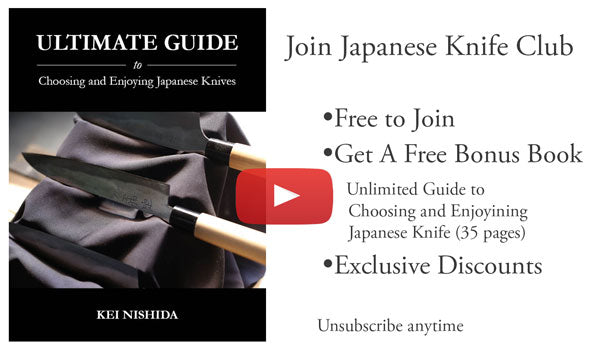
Sign up for free to the Japanese Knife Club to get advice and exclusive articles about how to choose Japanese Knives, and tips and tricks for using Japanese knives.
About the author
Kei Nishida
Author, CEO Dream of Japan
Certification: PMP, BS in Computer Science
Education: Western Washington University
Kei Nishida is a passionate advocate of Japanese craftsmanship, a writer, and the founder and CEO of Japanese Knife Co., Japanese Green Tea Co., and Japanese Coffee Co., all part of Dream of Japan.
His journey began with a mission to introduce the world to the exquisite flavors of Japanese green tea. Through Japanese Green Tea Co., he pioneered the import of premium tea grown in nutrient-rich sugarcane soil, earning multiple Global Tea Champion awards. He then expanded into the world of coffee, launching Japanese Coffee Co., the first company to bring Sumiyaki charcoal-roasted coffee to a global audience.
With a deep appreciation for Japanese artistry and tradition, Kei turned his attention to one of Japan’s most revered crafts: bladesmithing. Through Japanese Knife Co., he made handcrafted katana-style knives, created by a renowned katana maker, available outside Japan for the first time. These exceptional knives embody centuries of samurai sword-making expertise, blending tradition with modern functionality for chefs and collectors alike.
Kei’s journey continues as he uncovers and shares Japan’s hidden treasures—one sip, one blade, and one legacy at a time.

